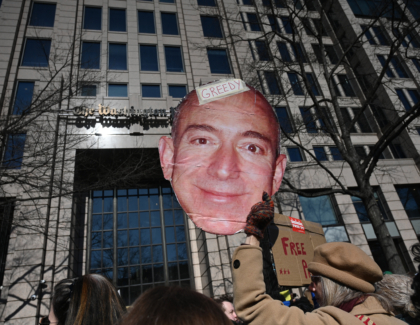Sign up for the daily CJR newsletter.
A new study traces more than thirty years of changing public attitudes toward the news media, and unhappily finds that to know journalism is to disdain it. Timothy E. Cook and Paul Gronke, in the July edition of Political Communication, find that “for the heaviest consumers of the news (the more educated, the better-off, older respondents),…familiarity with the news product breeds a lack of confidence (if not contempt) with the press as an institution.”
It could be that people tend to conflate the often-unsavory content of the news with those who deliver it. Or it could be that being highly educated not only predisposes one to heavy media use, but also to a critical attitude. But then why would education not so consistently be associated with disdain of other leading institutions?
Part of the answer is demographic. The people who trust the media least tend to be not only heavy news consumers but particularly social conservatives, political Republicans, and the religiously devout—groups that have come to make up a larger portion of the U.S. population in recent decades, relative to their more press-friendly counterparts. “Confidence in the press has fallen in part,” the authors write, “because those groups that formerly constituted a core of support…(Democrats, liberals, partisans in opposition to the party in power) have shrunk considerably over the last three decades.” (Or at least they had as of 2004, the cut-off for the data that Cook and Gronke used.)
It wasn’t always thus. In the backslapping days after Watergate, levels of confidence in the press routinely surpassed those for Congress and the president, though falling short of the level of trust in the military or the Supreme Court. Yet while confidence in the legislative and executive branches bounced up and down in the intervening thirty years, confidence in media leaders just kept spiraling down.
Cook and Gronke draw their analysis from three decades of General Social Survey results. The surveys, conducted by the National Opinion Research Center, gathered opinion data annually from 1972 to 1994 and then biannually since then. They asked respondents whether they had “a great deal of confidence, only some confidence, or hardly any confidence at all” in the people running eleven major social and political institutions, including banks, businesses, and government. Public confidence in the leaders of all the organizations pitched and rolled over the years, except for those at the helm of journalism, who saw only a sinking ship. The percentage of people with “hardly any” confidence in the press tripled from 15 percent in 1973 to 43 percent in 2004.
Still, the picture of rampant distrust of the media may be somewhat less gloomy than it first appeared. People’s distrust of the press, say Cook and Gronke, is generally limited to the disembodied, abstract idea of “the media” rather than individual news outlets, in which they have more faith. Surveys suggest that very large majorities of Americans (80 percent or more) feel positively about local TV news, local newspapers, and network TV news. (This is a familiar finding—people like their own doctors but distrust the medical profession.) The Nixon White House sensed this in its insistence on referring to the press as “the media” because the term sounded more monolithic and Machiavellian than “the press”—and, as William Safire recalled, “the press hated it.” From Nixon’s and Spiro Agnew’s bitter attacks on the “liberal media” to today’s attitude toward the press, right-wing media critics have gained considerable political traction, making distrust of mainstream media practically a plank in the Republican platform. (Left-wing thinkers, of course, make the case that our most powerful media outlets are overwhelmingly cautious, pro-business, pro-establishment organizations, but this argument has not had the same kind of popular resonance.)
The gap between citizens’ high approval of their own local media and strong distrust of “the media” in general leaves hazy just what people have in mind when they respond to a survey about their confidence in “the media.” Still, Gronke and Cook do a good turn in highlighting the puzzling ways in which trust of the media follows a pattern distinct from trust in other leading institutions. And their finer point gives reason for cheer: public trust in an institutional media may be diminishing, but trust in individual journalists and outlets remains. When it comes to the press, proximity breeds respect.
Has America ever needed a media defender more than now? Help us by joining CJR today.






